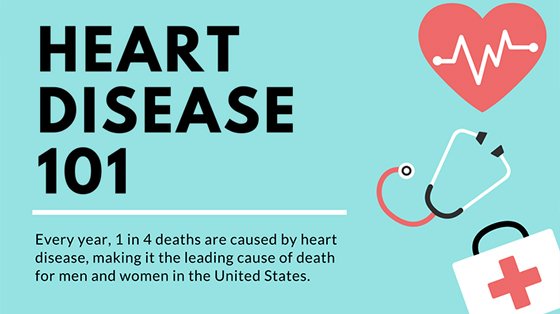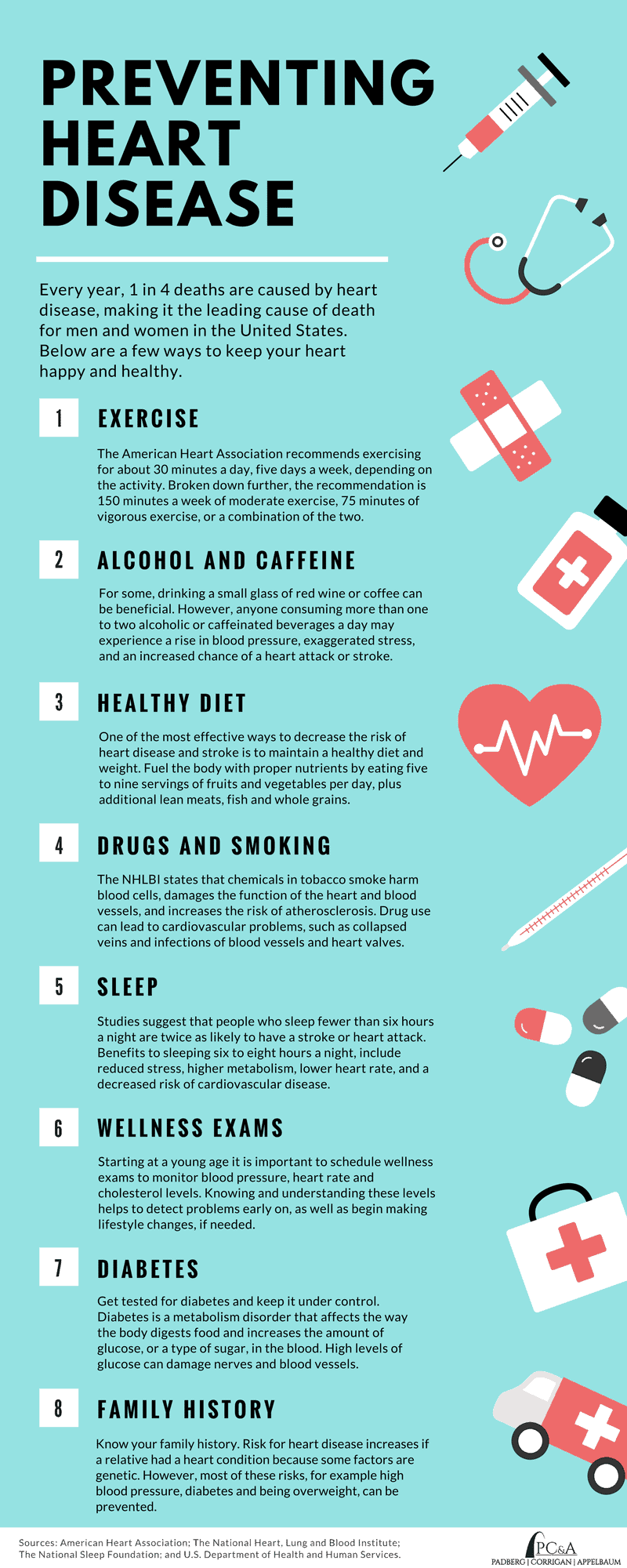
Heart Disease 101
Feb 1, 2017 Articles and Resources
The significance of the heart can be witnessed everywhere. It is used as the sign of love and affection, citizens of many countries place their hand over it to honor their flags, and video games use it as a symbol of life. In fact, the month of February is even recognized as American Heart Month.
Why is the heart so important? The heart is a complex muscular organ, tasked with the responsibility of pumping blood and nutrients throughout the body to help other organs function properly. Its job starts by taking in oxygen-poor, or deoxygenated, blood and delivering it to the lungs to be filled with oxygen. From there, the oxygen-rich blood is sent back to the heart to be dispersed through a system of arteries and veins. Furthermore, the heart is comprised of four chambers and multiple valves that ensure the oxygen-poor blood does not mix with the oxygen-rich blood, and to prevent the blood from flowing backwards.
What is Heart Disease?
Every year, 1 in 4 deaths are caused by heart disease, making it the leading cause of death for men and women in the United States. Heart disease, also known as cardiovascular disease, is a general term describing a range of conditions that can affect the heart.
One of the most common forms of heart disease stems from a process called atherosclerosis. Atherosclerosis happens when plaque builds up on the walls of the arteries. Plaque is a deposit made up of cholesterol, fat, calcium and other substances. This buildup is often a slow narrowing of the arteries and can lead to a heart attack, when the blood flow to a part of the heart is completely blocked by a blood clot, or a stroke, which is when the blockage or rupture takes place in a vessel that feeds the brain.
Other heart conditions, such as those that affect the heart’s muscle, valves or rhythm, are also considered forms of heart disease. Heart failure is when the heart doesn’t pump blood as well as it should. A condition called arrhythmia is an abnormal rhythm of the heart. And various heart valve complications can consist of valves not opening enough, valves not closing properly, and valve leaflets that fail to form tight seals.
Heart Disease Symptoms & Treatment
Oftentimes, heart disease is not diagnosed until a person experiences a heart attack, stroke or heart failure. However, by knowing the symptoms of heart disease it is possible to find the condition before it becomes a potentially fatal problem and treat it with medications, surgeries, or installing technology, such as a pacemaker. Common signs of heart disease include, but are not limited to:
- Chest Pain or Discomfort
- Shortness of Breath
- Lightheadedness, Dizziness or Fainting
- Fatigue
- Irregular or Fluttering Heartbeats
- Swelling in Hands, Abdomen, Face, Legs, Ankles or Feet
Preventing Heart Disease
While some people are born with or inherit heart disease, known as congenital heart defects, other forms can be caused by correctable problems, such as high blood pressure, diabetes and stress. The best way to prevent heart disease is to live a healthy lifestyle. Below are a few suggestions to keep your heart happy and healthy:

The human body is resilient and, when provided with the right nutrients and tools, it is equipped to recover from many hardships. Although heart disease is a serious condition, the good news is it is often preventable and treatable.
If you feel you may be experiencing a heart problem, it is always best to seek immediate medical attention.
